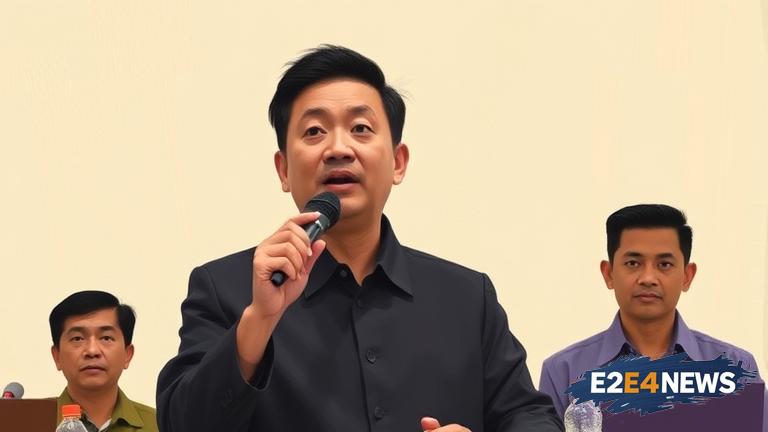The debate over the Universities and University Colleges Act (AUKU) has sparked intense discussion in Malaysia, with Rafizi Ramli, a key figure in the Pakatan Harapan (PH) government, facing criticism for his stance on maintaining the law. AUKU, which has been in place since 1971, has been seen as a restrictive measure that limits the freedom of students and academics in Malaysian universities. The law prohibits students from participating in political activities and has been used to stifle dissent and opposition voices. Despite being a champion of reforms, Rafizi’s decision to maintain AUKU has been met with disappointment and frustration from various quarters. Critics argue that AUKU goes against the principles of academic freedom and autonomy, which are essential for the development of critical thinking and intellectual discourse. The law has also been seen as a tool for the government to exert control over universities and suppress dissenting voices. The PH government, which came into power in 2018, had promised to reform AUKU and introduce more democratic and inclusive laws. However, Rafizi’s stance on maintaining AUKU has raised questions about the government’s commitment to these reforms. The issue has sparked a heated debate, with many calling for the abolition of AUKU and the introduction of more progressive laws that promote academic freedom and autonomy. Student groups and academic associations have been at the forefront of the campaign to reform AUKU, arguing that the law is outdated and restrictive. They have called for the government to repeal AUKU and introduce laws that promote freedom of speech, assembly, and association. The debate over AUKU has also highlighted the need for greater transparency and accountability in Malaysian universities. Many have argued that the law has been used to silence critics and stifle dissent, and that it is essential to introduce more democratic and inclusive laws that promote academic freedom and autonomy. The issue has also sparked a wider debate about the role of universities in Malaysian society and the need for greater autonomy and independence. The government has been accused of using AUKU to exert control over universities and suppress dissenting voices, and many have called for the law to be repealed. The campaign to reform AUKU has gained momentum in recent weeks, with many calling for the government to take immediate action to address the issue. The PH government has been urged to reconsider its stance on AUKU and introduce more progressive laws that promote academic freedom and autonomy. The debate over AUKU has highlighted the need for greater transparency and accountability in Malaysian universities and the need for more democratic and inclusive laws. The issue has sparked a heated debate, with many calling for the abolition of AUKU and the introduction of more progressive laws. The government has been accused of using AUKU to stifle dissent and opposition voices, and many have called for the law to be repealed. The campaign to reform AUKU is expected to continue, with many calling for the government to take immediate action to address the issue. The PH government has been urged to reconsider its stance on AUKU and introduce more progressive laws that promote academic freedom and autonomy. The debate over AUKU has highlighted the need for greater transparency and accountability in Malaysian universities and the need for more democratic and inclusive laws. The issue has sparked a wider debate about the role of universities in Malaysian society and the need for greater autonomy and independence. The government has been accused of using AUKU to exert control over universities and suppress dissenting voices, and many have called for the law to be repealed. The campaign to reform AUKU has gained momentum in recent weeks, with many calling for the government to take immediate action to address the issue.





